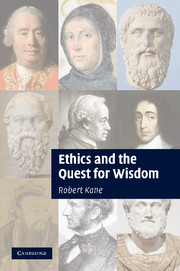Book contents
- Frontmatter
- Contents
- Acknowledgements
- 1 Introduction: pluralism and uncertainty
- 2 Openness
- 3 The retreat
- 4 The moral sphere
- 5 Fact and value
- 6 Value experiments
- 7 Virtues, excellences and forms of life
- 8 The fourth dimension
- 9 Aspiration
- 10 Wisdom
- 11 Objective worth
- 12 The Bach crystals
- 13 Human flourishing
- 14 The Faust legend and the mosaic
- 15 The good and the right (I): intuitionism, Kantianism
- 16 The good and the right (II): utilitarianism, consequentialism
- 17 The good and the right (III): contractualism
- 18 Politics, public morality and law: justice, care and virtue
- References
- Index
18 - Politics, public morality and law: justice, care and virtue
Published online by Cambridge University Press: 07 September 2010
- Frontmatter
- Contents
- Acknowledgements
- 1 Introduction: pluralism and uncertainty
- 2 Openness
- 3 The retreat
- 4 The moral sphere
- 5 Fact and value
- 6 Value experiments
- 7 Virtues, excellences and forms of life
- 8 The fourth dimension
- 9 Aspiration
- 10 Wisdom
- 11 Objective worth
- 12 The Bach crystals
- 13 Human flourishing
- 14 The Faust legend and the mosaic
- 15 The good and the right (I): intuitionism, Kantianism
- 16 The good and the right (II): utilitarianism, consequentialism
- 17 The good and the right (III): contractualism
- 18 Politics, public morality and law: justice, care and virtue
- References
- Index
Summary
POLITICS AND NEUTRALITY
In this concluding chapter, I consider some practical implications of the moral theory of earlier chapters for political philosophy, law, social ethics and moral education. I begin with current debates about state neutrality in political theory and move on to issues about public morality, the legal enforcement of morals, debates about an ethics of justice versus care, the role of virtues in moral education and the relation of ethics to politics.
Influential political and legal philosophers, such as John Rawls, Ronald Dworkin, Bruce Ackerman, Charles Larmore, D. A. Lloyd-Thomas and others, have argued in different ways and with differing qualifications that states or governments in free and pluralist societies should remain neutral with respect to (in Rawls' terms) differing “comprehensive conceptions of the good,” not favoring or establishing one such conception over others. The general argument for neutrality so understood is that, in a pluralist state, where citizens have differing conceptions of the good and competing ways of life, if the state favors one conception of the good (a religion or ideology or particular morality) over others, it cannot legitimately claim the full assent of all citizens whose religious or moral views differ from the favored one.
This argument has appeal. But the ideal of state neutrality is controversial and has many critics. Critics argue that complete state neutrality would appear to be an impossibility. Every law, policy or political institution will inevitably favor some conceptions of the good over others.
- Type
- Chapter
- Information
- Ethics and the Quest for Wisdom , pp. 246 - 260Publisher: Cambridge University PressPrint publication year: 2010



